Why Choosing the Best Africa Safari Country Matters More Than You Think
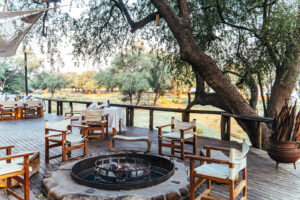
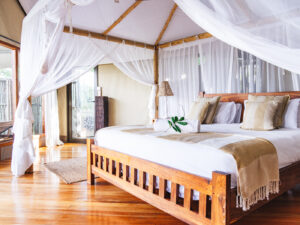
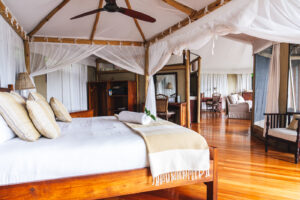
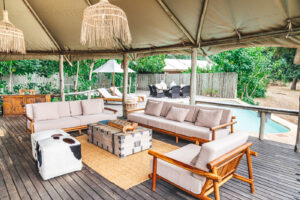
Best africa safari country – Best africa safari country
The Best africa safari country depends entirely on what kind of trip calls to your soul. Some travelers dream of witnessing millions of wildebeest thundering across the Serengeti, while others crave intimate mokoro canoe rides through Botswana’s pristine waterways.
Quick Answer: Top Safari Countries by Experience Type
- Best for Wildlife Density: Botswana (40% of Africa’s elephants)
- Best for Great Migration: Kenya & Tanzania (2+ million animals)
- Best for Budget Travelers: South Africa (self-drive options, malaria-free areas)
- Best for Gorilla Trekking: Rwanda & Uganda (mountain gorilla populations)
- Best for Trip Seekers: Namibia (world’s largest free-roaming black rhino population)
- Best for Walking Safaris: Zambia (birthplace of walking safaris)
- Best Overall Value: Zimbabwe (authentic wilderness experiences)
Choose wrong, and you could end up in crowded parks with “sometimes 50 vehicles at prime sightings.” Choose right, and you’ll find yourself sleeping under the Milky Way in Botswana’s Makgadikgadi Pan or tracking desert-adapted elephants in Namibia’s ancient landscapes.
What makes this decision so critical? Each country offers completely different experiences:
- Botswana enforces a “high-value, low-impact” tourism model with exclusive concessions
- Kenya provides 25 national parks but varies wildly in crowd levels
- Tanzania hosts the iconic Serengeti but requires careful timing for migrations
- South Africa offers Big Five viewing that’s accessible and malaria-free
- Namibia delivers solitude with just 2 million people across 300,000+ square miles
I’m Leo Simba, and I’ve spent years guiding small-group expeditions across Africa’s most pristine wilderness areas, helping trip-seekers find which Best africa safari country aligns with their values of authentic, immersive experiences.
IMG
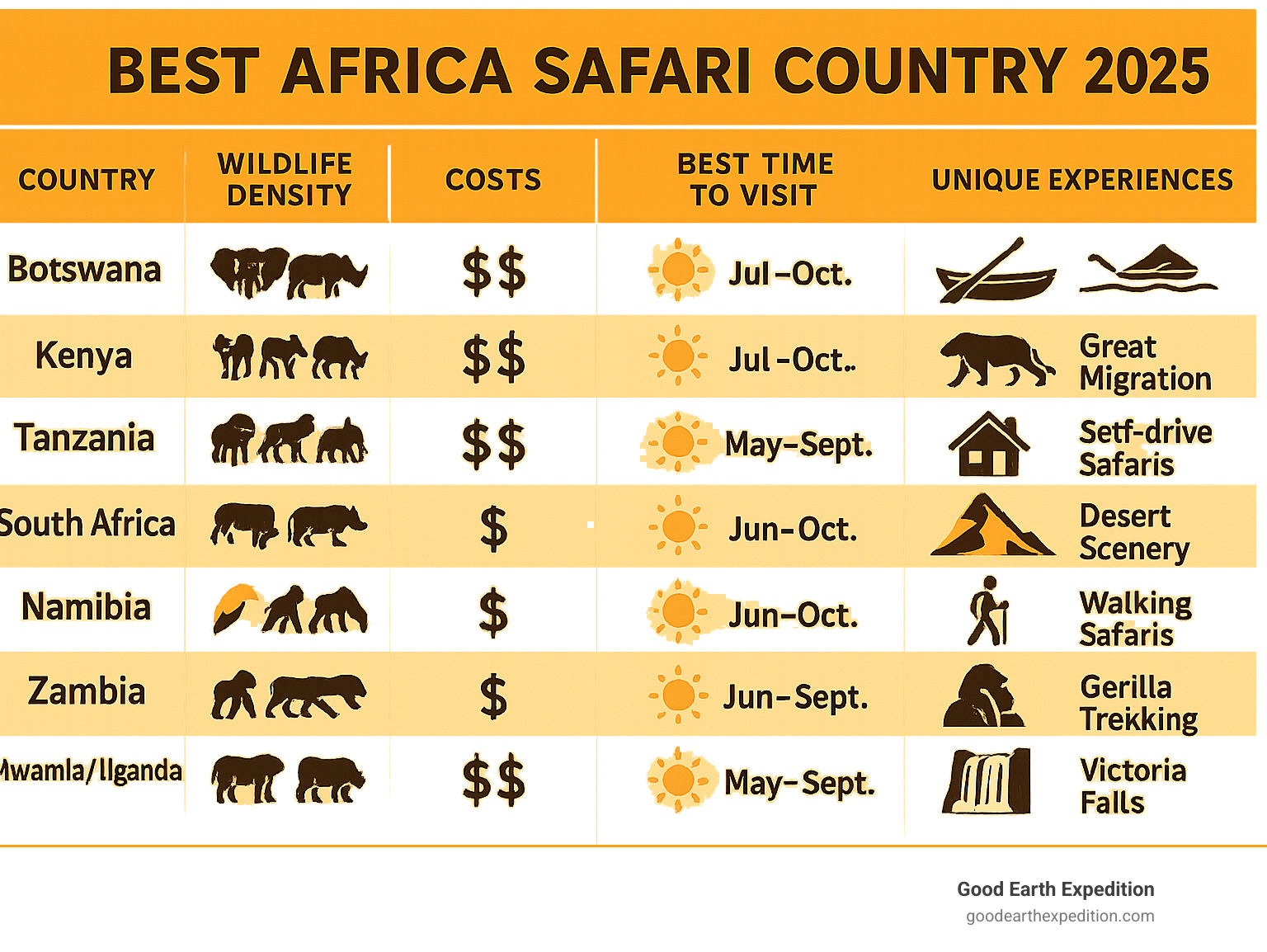
Comprehensive comparison chart showing wildlife density, costs, best travel times, and unique experiences across top 8 African safari countries including Botswana, Kenya, Tanzania, South Africa, Namibia, Zambia, Rwanda/Uganda, and Zimbabwe with icons for Big Five animals, accommodation types, and seasonal recommendations – Best africa safari country infographic
Key Decision Factors Before You Book
After years of guiding travelers through this decision, I can tell you that getting these key factors right upfront makes the difference between a good safari and an absolutely magical one.
Wildlife density versus variety creates your first major choice. Botswana will blow your mind with the world’s largest elephant concentration – imagine hundreds gathering at Chobe’s riverfront at sunset. But Kenya offers incredible diversity across 25 national parks, where you might spot rare Grevy’s zebras in the morning and flamingo-covered lakes by afternoon.
The Big Five reality check often surprises first-time safari-goers. While South Africa’s Kruger National Park practically guarantees you’ll tick off all five during a self-drive trip, other destinations excel at specific species. Namibia hosts the world’s largest free-roaming black rhino population.
Landscape preferences matter more than most people realize. Tanzania’s iconic acacia-dotted Serengeti plains create those classic “Out of Africa” moments. Meanwhile, Namibia serves up otherworldly desert landscapes where ancient sand dunes meet shipwreck-scattered coasts.
Your travel style philosophy – self-drive versus guided experiences – fundamentally shapes both your trip and your budget. South Africa and Namibia excel for independent travelers. But countries like Botswana and Zambia require guided experiences since many camps are only accessible by light aircraft.
Conservation ethics and community impact drive everything we do at Good Earth Expedition. Botswana banned commercial hunting entirely in 2014. Rwanda’s mountain gorilla population has grown to over 1,000 individuals thanks to dedicated conservation efforts. Kenya’s community-run conservancies directly benefit local Maasai families.
Matching Your Goals & Comfort Level
Luxury lodge experiences reach their pinnacle in Botswana, where exclusive Okavango Delta camps cost $650-$4,000 per person per night. These intimate sanctuaries are accessible only by light aircraft, hosting fewer than 20 guests at a time.
Mobile camping trips offer the thrill of following wildlife movements across Tanzania or Botswana. Expert guides set up comfortable camps in new locations each night.
Walking safari immersion transforms your entire perspective on African wilderness. Zambia pioneered this concept and remains the premier destination for these intimate encounters with armed guides.
Family-friendly options shine brightest in South Africa, offering malaria-free reserves like Madikwe Game Reserve and easy self-drive access in Kruger National Park.
Budget & Time Realities
Hidden costs can blindside travelers. Tanzania’s Serengeti charges $70 per day in park fees, while Ngorongoro Crater adds another $250 vehicle fee. Rwanda’s gorilla permits cost $1,500 compared to Uganda’s $800.
Flight logistics become important for remote destinations. Botswana’s exclusive camps often require multiple charter flights, adding $500-$1,500 per person but providing spectacular aerial wildlife viewing.
Park fee strategies can save hundreds. The KAZA UniVisa costs just $50 and covers travel between Zambia, Zimbabwe, and Botswana. East Africa’s regional visa covers Kenya, Uganda, and Rwanda.
Best Africa Safari Country Comparisons
Choosing the Best africa safari country feels overwhelming when you’re staring at a map of this vast continent. After guiding hundreds of travelers through Africa’s wilderness, I’ve learned that the “best” country depends entirely on what makes your heart race with excitement.
East vs. Southern Africa: Two Different Worlds
East Africa – Kenya, Tanzania, Uganda, and Rwanda – offers that classic “Out of Africa” feeling with endless plains, dramatic river crossings, and vibrant Maasai cultures. Wildlife viewing stays consistent year-round, though the Great Migration adds seasonal drama.
Southern Africa tells a different story. Countries like Botswana, South Africa, Namibia, Zambia, and Zimbabwe focus on intimate, exclusive experiences with pristine wilderness areas and diverse landscapes ranging from the Kalahari Desert to the lush Okavango Delta.
The Private Concession Game-Changer
In Botswana’s private concessions, you might spend an entire morning following a leopard with just your guide. Compare that to peak season in Kenya’s Masai Mara, where popular sightings can attract 20+ vehicles. Private concessions allow night drives, off-road tracking, and walking safaris impossible in national parks.
IMG
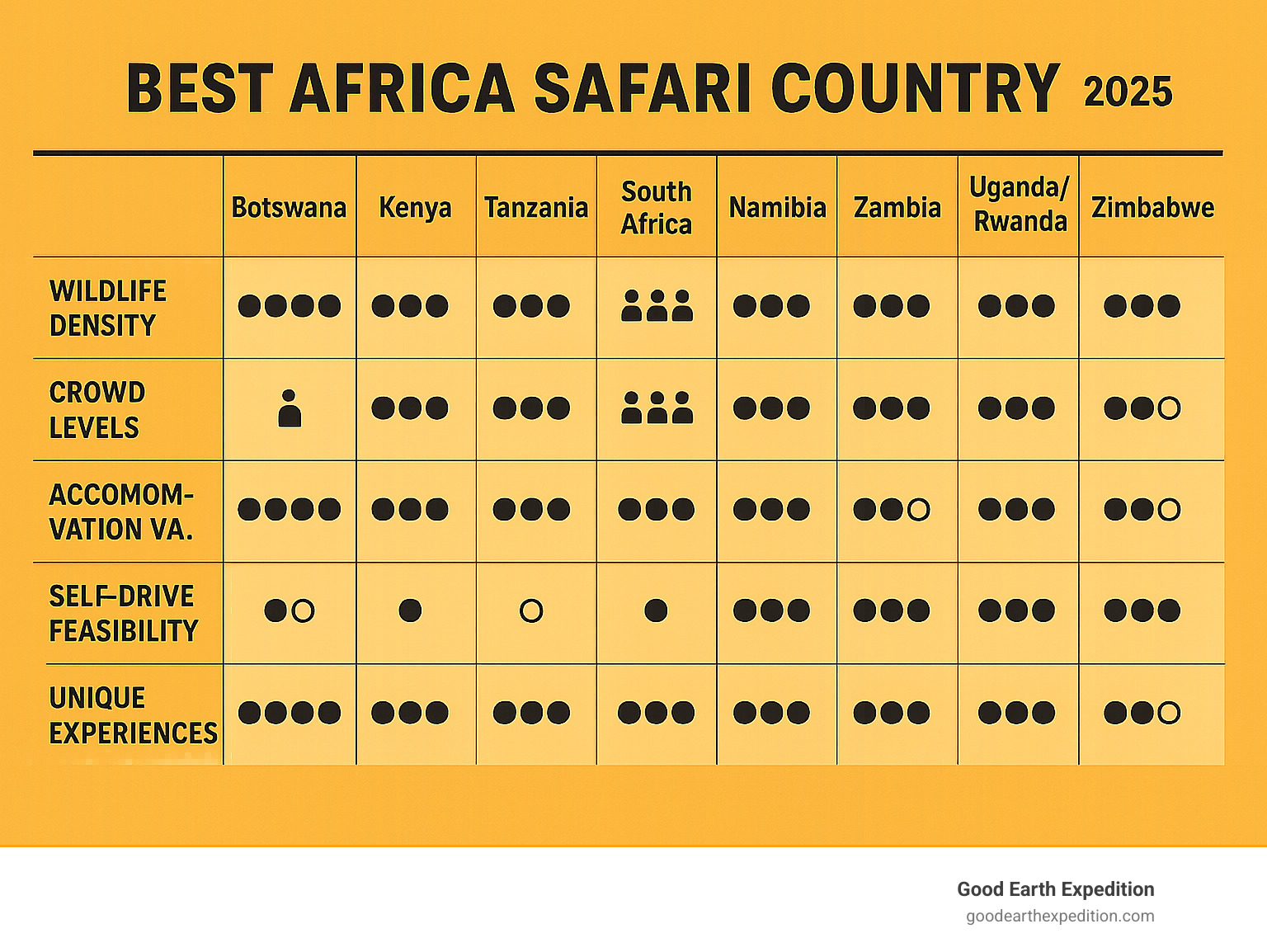
Detailed comparison table showing Botswana, Kenya, Tanzania, South Africa, Namibia, Zambia, Uganda/Rwanda, and Zimbabwe with ratings for wildlife density, crowd levels, accommodation variety, self-drive feasibility, and unique experiences – Best africa safari country infographic
Why Botswana May Be the Best africa safari country
If exclusivity and pristine wilderness top your priority list, Botswana might be your perfect match. This country has mastered luxury safari experiences while maintaining successful conservation programs.
The Okavango Delta: Where Desert Meets Water
The Kalahari Desert suddenly blooms into a watery paradise. Seasonal floods create channels, islands, and lagoons supporting incredible wildlife concentrations. Mokoro excursions (traditional dugout canoes) let you glide silently through papyrus channels, approaching elephants and hippos without engine noise.
Chobe: The Elephant Capital of the World
Chobe National Park hosts over 50,000 elephants that gather in massive herds along the Chobe River. Picture 200+ elephants coming down to drink at sunset, with babies playfully splashing while mothers stand guard.
Where Kenya Shines as the Best africa safari country
Kenya delivers everything you’ve imagined about African safaris: vast savannas, dramatic wildlife spectacles, and authentic cultural encounters with Maasai communities.
The Great Migration: Nature’s Greatest Show
Over 2 million wildebeest, zebras, and gazelles follow ancient migration routes. Mara River crossings (July-October) provide heart-stopping drama as animals brave crocodile-infested waters.
Private Conservancy Revolution
Kenya’s private conservancies around the Masai Mara offer night drives, walking safaris, and cultural visits to Maasai villages while directly benefiting local communities through lease payments.
Tanzania: Migration Super-Highway
Tanzania hosts Africa’s most famous wildlife spectacle while offering incredible diversity from the Serengeti plains to Ngorongoro’s volcanic highlands.
Serengeti: The Endless Plains
The Great Migration moves through different regions throughout the year. The western corridor offers dramatic crocodile encounters during river crossings (June-July), while central plains provide year-round predator viewing.
Ngorongoro: The World’s Largest Zoo
This intact volcanic caldera supports one of Africa’s highest permanent wildlife densities, including endangered black rhinos. You might see all Big Five in a single day.
South Africa: Big Five on a Budget
South Africa combines accessibility with wildlife diversity, perfect for first-time safari visitors, families, and budget-conscious travelers.
Kruger Self-Drive Success
Kruger’s extensive road network enables independent exploration at budget-friendly rates. The park virtually guarantees Big Five sightings while self-catering accommodation keeps costs manageable.
Malaria-Free Family Options
Private reserves like Madikwe Game Reserve offer Big Five viewing without malaria risk, perfect for families with young children.
Namibia & Zambia: Off-the-Beaten-Path Gems
Namibia’s Desert Adaptations
Desert-adapted wildlife provides viewing opportunities you won’t find anywhere else. Desert elephants traverse vast landscapes following ancient migration routes.
Zambia: Walking Safari Pioneer
Zambia invented the walking safari concept. South Luangwa National Park offers exceptional predator viewing combined with expert guiding traditions
Uganda vs Rwanda: Primate Power
Gorilla Permit Economics
Rwanda’s gorilla permits cost $1,500 compared to Uganda’s $800, but Rwanda offers easier access. Uganda hosts nearly half the world’s remaining mountain gorilla population.
Zimbabwe: Classic Wilderness Revival
Zimbabwe offers authentic African wilderness experiences with excellent value, combining Victoria Falls with exceptional wildlife viewing.
African safari landscape with acacia trees and wildlife at sunset – Best africa safari country
Safari Costs & Best Times to Go
Let’s talk money and timing – two things that can make or break your dream safari. The Best africa safari country for your budget depends on what matters most to you – luxury, wildlife density, or stretching your dollars.
Park Fee Reality Check
Tanzania’s Serengeti charges $70 per day during peak season, plus an extra $250 vehicle fee for Ngorongoro Crater. Kenya’s Masai Mara adds $80 for external access, while South Africa’s Kruger keeps things reasonable with modest daily fees.
The smart money move? Kenya, Uganda, and Rwanda offer a single East Africa visa. Botswana, Zambia, and Zimbabwe have the KAZA UniVisa for $50 – perfect for multi-country trips.
Accommodation Tiers That Make Sense
Botswana’s exclusive Okavango Delta camps command $650-$4,000 per person per night because you’re flying into pristine wilderness accessible only by small aircraft. Tanzania and Kenya hit the sweet spot at $200-$800 per night with excellent game viewing and professional guiding.
Ballpark Budgets by Country
Botswana: Premium Pricing Worth Every Penny
Expect $1,000-$1,500 per person per day for fly-in safari packages. You’re paying for exclusive access to pristine wilderness where you might not see another vehicle all day.
Kenya/Tanzania: The Sweet Spot
Budget $300-$800 per person per day for quality experiences including park fees, accommodation, and guided game drives. Migration periods command premium rates, but shoulder seasons offer incredible wildlife at lower costs.
South Africa: Outstanding Value
Self-drive Kruger safaris cost as little as $100-$200 per person per day including accommodation and park fees. You’ll still see the Big Five while controlling pace and costs.
Namibia: Self-Drive Savings Champion
Vehicle rental averages $800 per week with camping fees of just $20-$50 per person per night, making Namibia incredibly budget-friendly for independent travelers.
Month-by-Month Wildlife Highlights
Dry Season Magic (May-October)
Southern Africa’s dry season creates wildlife viewing theater. Animals concentrate around permanent water sources, making sightings predictable and spectacular. Botswana’s Chobe River becomes an elephant highway with herds numbering in the hundreds.
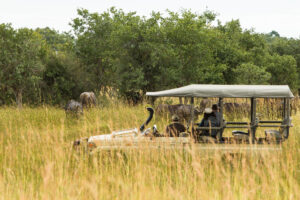
Green Season Secrets (November-April)
The rainy season is when Africa truly comes alive. Landscapes transform into lush green paradises, baby animals appear everywhere, and costs drop significantly while crowds disappear.
Great Migration Timing
Serengeti calving season runs January-March when over 400,000 calves are born. River crossings peak June-August as herds move north. Masai Mara viewing is optimal July-October when massive herds spread across Kenya’s grasslands.
Gorilla Trekking Dry Spells
Mountain gorilla trekking succeeds year-round, but dry seasons (June-September, December-February) offer easier hiking and clearer mountain views.
Travel Logistics, Safety & Responsible Tourism
Planning your Best africa safari country experience goes beyond picking a destination. The practical details make the difference between a smooth, life-changing journey and a stressful ordeal.
Understanding Malaria Risk Zones
Malaria risk varies dramatically between safari areas. South Africa’s Madikwe Game Reserve and Eastern Cape reserves are completely malaria-free, perfect for families. Botswana’s northern regions require malaria prophylaxis, while high-altitude destinations like Rwanda’s Volcanoes National Park have minimal risk. Always consult a travel medicine specialist 6-8 weeks before departure.
Road Conditions Shape Your Experience
Namibia’s excellent road network makes it perfect for self-drive safaris. Botswana’s most exclusive camps require charter flights because road access would take days. Tanzania’s northern circuit maintains good roads between major parks, but southern gems like Katavi require 4WD vehicles.
Solo Travel Safety Realities
Solo safari travel is incredibly rewarding with proper planning. Safety comes down to choosing reputable operators with established safety protocols. Group joining options in Kenya and Tanzania provide excellent solutions for sharing costs while meeting like-minded travelers.
Ethical Wildlife Encounters
Every safari moment should prioritize animal welfare over dramatic photos. Never approach animals on foot without armed, qualified guides. Avoid flash photography with nocturnal species, and respect park rules about off-road driving.
Community Projects That Actually Matter
Kenya’s community conservancies around the Masai Mara demonstrate how tourism revenue directly funds schools, clinics, and conservation efforts. Namibia’s communal conservancies give local communities financial incentives to protect wildlife. Rwanda’s gorilla guardian program employs former poachers as conservation guides.
Visas, Vaccinations & Insurance Essentials
KAZA UniVisa: Southern Africa Made Simple
The KAZA UniVisa ($50) allows 30 days of unlimited movement between Zambia, Zimbabwe, and Botswana – perfect for combining Victoria Falls, Chobe’s elephant herds, and the Okavango Delta.
East Africa’s Smart Solution
Kenya, Uganda, and Rwanda offer their own East Africa Tourist Visa ideal for combining Kenya’s Great Migration with Uganda’s gorilla trekking or Rwanda’s mountain gorillas.
Yellow Fever Reality Check
Yellow fever requirements depend on your travel history, not just your destination. Verify current requirements well before travel, as regulations change frequently. Your vaccination certificate must be at least 10 days old to be valid.
Insurance That Actually Works
Safari travel demands comprehensive insurance covering medical evacuation, trip cancellation, and gear protection. Remote locations may require expensive helicopter evacuations – costs that can exceed $50,000 without proper coverage.
Staying Green on Safari
Plastic Ban Compliance
Kenya and Rwanda have implemented strict plastic bag bans with significant penalties. Pack reusable bags and avoid bringing any single-use plastics.
Solar Power Revolution
Progressive safari camps now use solar power and renewable energy to minimize environmental impact while reducing generator noise that disturbs wildlife.
Leave No Trace Principles
Responsible safari behavior starts with minimizing environmental impact through careful waste management and staying on designated trails. Pack out all trash and use biodegradable soaps near water sources.
Ranger leading walking safari through African wilderness – Best africa safari country
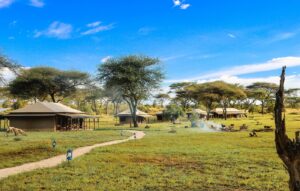
Frequently Asked Questions about the Best africa safari country
After years of helping travelers plan their dream safaris, the same questions come up repeatedly. Here are the honest answers that will help you make the best decisions.
Is it better to focus on one country or combine several?
For first-time safari visitors or anyone with less than 10 days, I always recommend focusing on a single Best africa safari country. You’ll spend more time watching elephants and less time in airport lounges.
Longer trips of 14+ days open up incredible multi-country possibilities. Neighboring countries like Kenya and Tanzania work beautifully together for witnessing the wildebeest migration from both sides. The KAZA UniVisa makes combining Zambia, Zimbabwe, and Botswana seamless.
My advice? Start with one country that matches your primary interest, then add neighboring destinations if time and budget allow.
How far in advance should I book permits and lodges?
Rwanda’s gorilla permits at $1,500 each require 6-12 months advance booking. Uganda’s permits cost less at $800 but still need 3-6 months planning.
Botswana presents the biggest challenge. Those exclusive Okavango Delta camps fill up 6-18 months ahead for peak dry season. The most sought-after camps sometimes have waiting lists stretching two years.
Kenya and Tanzania’s migration camps require 6-12 months planning, while South Africa and Namibia provide much more last-minute availability.
My booking strategy? Reserve your must-have experiences first – gorilla permits, exclusive camps, migration viewing – then build the rest around those fixed dates.
Can I do a safari on a tight backpacker budget?
Absolutely! South Africa’s Kruger National Park offers self-drive safaris with rest camp accommodation starting around $50-$100 per person per day. You’ll spot the same Big Five that luxury lodge guests pay thousands to see.
Namibia offers incredible value through self-drive camping trips at just $100-$150 per person per day. Group joining safaris in Kenya and Tanzania bring costs down to $200-$400 per person per day.
Budget traveler’s playbook: Travel during shoulder seasons, choose group tours over private experiences, self-drive where safe, stay in budget camps, and focus on countries with lower park fees.
Conclusion
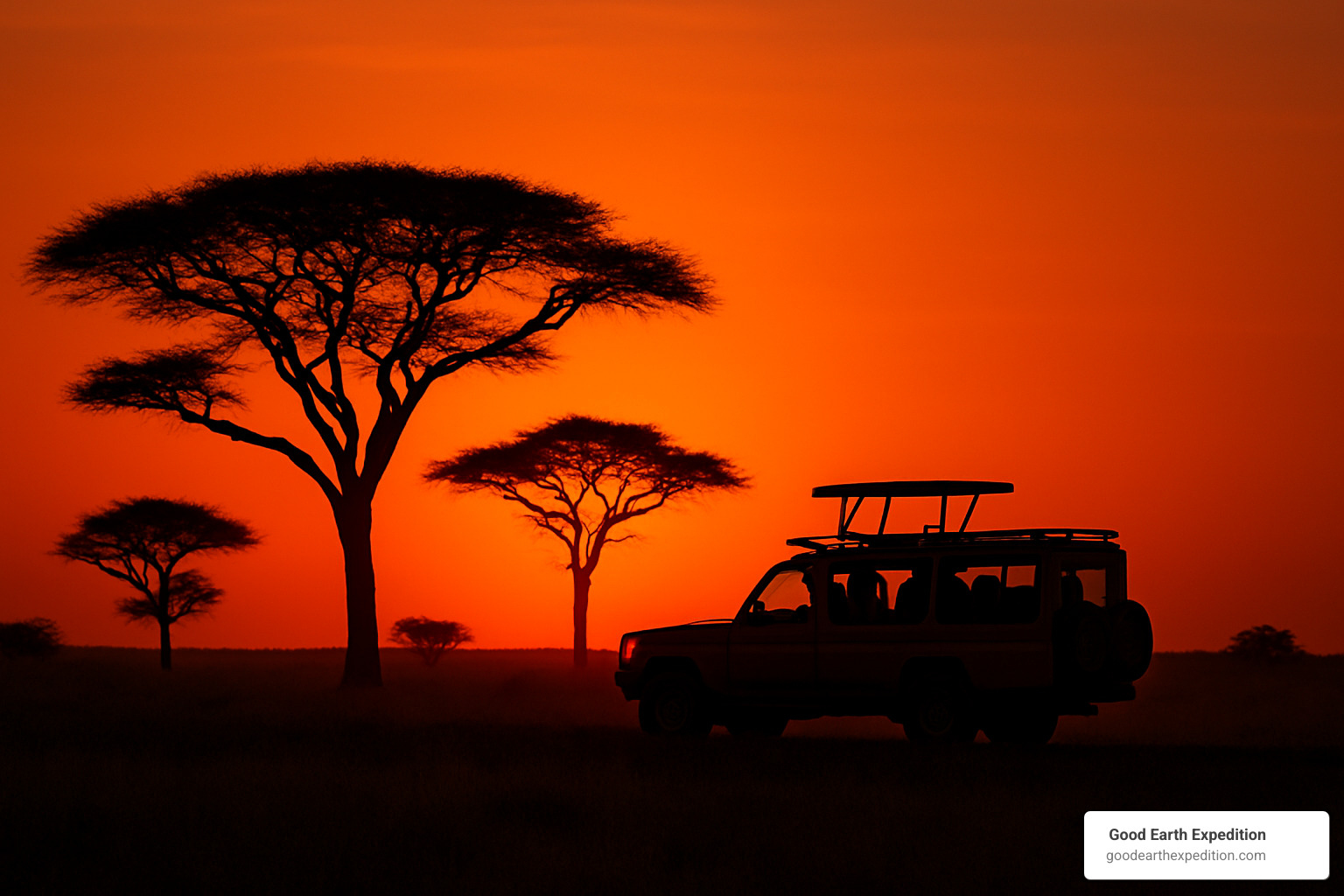
Safari vehicle at sunset with acacia trees silhouetted against orange sky – Best africa safari country
After exploring Africa’s incredible safari destinations, one truth emerges: there isn’t a single Best africa safari country – but there’s definitely a perfect match waiting for your unique travel dreams.
Think about what calls to you most. Exclusive mokoro rides through Botswana’s pristine waterways? Two million wildebeest thundering across Tanzania’s endless plains? Self-drive Big Five encounters in South Africa’s malaria-free reserves? Or tracking desert elephants across Namibia’s ancient landscapes?
The beauty of Africa’s diversity means every traveler finds their perfect fit. Families love South Africa’s infrastructure. Trip seekers gravitate toward Namibia’s solitudes and Zambia’s walking safaris. Wildlife photographers can’t resist Botswana’s incredible animal densities, while cultural enthusiasts find deep connections in Kenya’s Maasai communities.
What Makes Good Earth Expedition Different
As a locally-owned company, we see tourism differently. Every safari should create genuine connections between you, the wildlife, and the communities who protect these incredible places. Our small-group expeditions across Botswana, Kenya, Tanzania, South Africa, Zimbabwe, and Namibia focus on authentic experiences over tourist traps.
We craft each expedition around your interests, whether that means extra time photographing Namibia’s red dunes or additional days in the Okavango Delta. Our flexible approach means your safari adapts to you, not the other way around.
Your Next Steps
The research phase is done. Whether you’re drawn to Botswana’s exclusive wilderness, Kenya’s cultural richness, or South Africa’s accessibility, authentic experiences matter more than tourist traps. The difference between a good safari and a life-changing one comes down to working with operators who understand that responsible tourism creates better experiences for everyone.
Your perfect African trip is waiting. Which wild corner of Africa will become part of your story?
Africa’s wild spaces have been calling travelers for generations. Now they’re calling you. Which voice will you answer?


